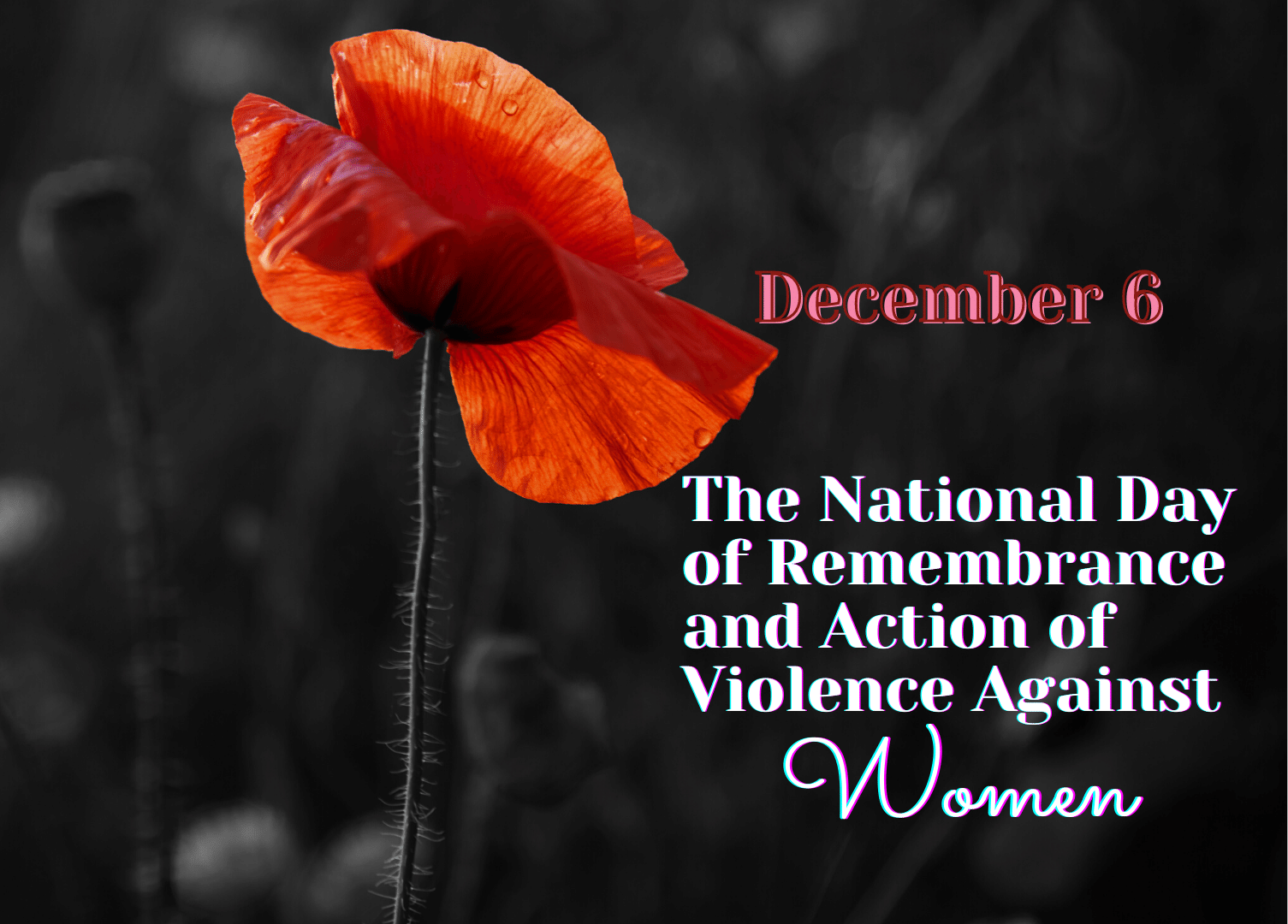
NFF Youth Blog: The National Day of Remembrance and Action of Violence Against Women

One late afternoon, a 25-year-old gunman carrying a semi-automatic assault rifle entered the École Polytechnique in Montréal. After arriving at his first classroom, he immediately ordered the men to exit the room, leaving him alone with the women. Blurting out “You all are feminists”, he began to open fire and killed six of the women, with many others injured. He did not stop there. He made his way around the engineering school, with nothing but hatred for women in mind. He died of suicide after stabbing his last victim, these horrific 20-minutes took 14 lives from us that day: one administrative assistant and thirteen students.
Today, we remember the lives unfairly lost to violence:
- Geneviève Bergeron
- Hélène Colgan
- Nathalie Croteau
- Barbara Daigneault Anne-Marie Edward
- Maud Haviernick
- Maryse Laganière
- Maryse Leclair
- Anne-Marie Lemay
- Sonia Pelletier
- Michèle Richard
- Annie St-Arneault
- Annie Turcotte
- Barbara Klucznik-Widajewicz
As we explore the different dimensions of gender-based violence through the 16 Days of Activism, December 6th is a particularly significant day which designates the National Day of Remembrance and Action on Violence Against Women. Marking the 32nd anniversary of the l’École Polytechnique massacre, also known as White Ribbon Day, we pause to commemorate the lives of the 14 young women who became victims of violent misogyny. This tragedy shook the world in 1989 as the women of our future were taken from us solely because of their gender. Looking around us, with flags flown at half-mast, and the plethora of white or purple ribbons, this moment is a reminder of our commitment to fight against misogyny and violence against women.
Although this day acts a reminder of the discrimination present in our society, it is also equally important to look deeper and understand why gender-based violence continues to be prevalent in our daily lives. The intent behind the shooting sparks questions of the power dynamics prevalent in structural systems.
Overall, gender-based violence is particularly predominant when there is an unequal distribution of power. Unjust standards become normalized in society and can form harmful interpretations of individuals, whether it be through concepts of gender, race, sexuality, ability, etc. These judgements often justify exploitations of power and violence.
Examining the l’École Polytechnique massacre, the armed student, Marc Lépine, specifically targeted women. Displaying clear discriminatory behavior, the motives behind this tragedy act as a manifestation of misogynistic views in society. Oftentimes, constructs such as toxic masculinity inherently influence individuals through popular discourse, and drive wrongful agendas of “masculinity”, thus reinforcing the need for men to be dominant, muscular, intelligent, logical, and to exhibit other “masculine” traits. Toxic masculinity can also prevent men from showing their feelings, which represses their emotions, and further increases the chances of diverting that frustration onto someone else. On the other hand, femininity is socially defined in the exact opposite way by categorizing women to be submissive, emotional, nurturing, and passive. When these constructs are used to label individuals, and eventually become expectations, any deviation from these stereotypes can lead to problems.
In this case, the young women of l’École Polytechnique were not displaying socially defined feminine characteristics, especially with goals of being engineers. In society’s eyes, a woman that is logical, good at math/physics/science, analytical, and overall, more “masculine”, is seen as a competitor to the man. Accordingly, competing in traditionally male-dominated arenas positions women at the same ‘power level’ as men, which may threaten social definitions. This thinking can form extreme hatred, such as that seen in Marc, as his views of normalized gender characteristics, and not seeing women equal to men, fueled so much internal resentment that it left nothing but violence as the end result. With so many lives lost to prejudicial thinking - it is important that we act to change these perceptions in order to prevent events like these from happening again.
Tackling systemic problems is a long-term fight for freedom, and change starts with you. Educating yourself, and others, about gender-based violence, and continuing to project the voices of women that are often brushed under the carpet, this awareness will plant the seed to bloom the flower of change. All over the world, girls and women, the 2SLGBTQQIA+ community, racial minorities, and cross-cultural individuals continue to face injustices, and it is time for this unacceptable behavior to be recognized and addressed. Together, we can eradicate the violence.
